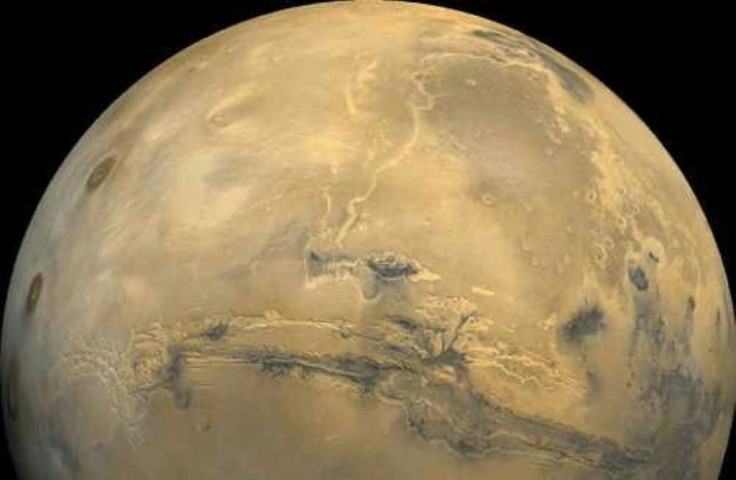Could Life Exist On Mars? Scientists Discover Multiple Underground Salty Ponds
KEY POINTS
- Researchers say they have discovered a group of lakes hidden under Mars' icy surface
- This follows the detection of another subsurface lake in the same region in 2018
- The findings revived the debate on whether the Red Planet has alien life or can house microorganisms
A team of Italian scientists discovered a group of three salty ponds beneath Mars' south pole. The findings revived the debate on whether the Red Planet has alien life or at least can house microorganisms.
The discovery of these ponds raised the possibility that microbial organisms could survive on Mars but the only hindrance was the high amount of salt concentration, which could be keeping the waters frozen, scientists said in a report published on Sept. 28 in Nature Astronomy.
The discovery of the salty ponds was significant because their locations were close to another lake discovered in 2018. The largest of them was estimated to be 18.64 miles wide and 1-mile deep, found underneath the Mars' icy surface. The whole network of these bodies of water is now estimated to be 75,000 square kilometers (28,957.66 miles) or about one-fifth the size of Germany, a follow-up report said.

In order to determine the locations of the multiple ponds on Mars, the team used radar data from the European Space Agency's (ESA) orbiting Mars Express spacecraft. The method the scientists used is similar to what has been used to find buried lakes underneath glaciers of Antarctica and the Canadian Arctic on Earth. The team compared their present findings to data from over 100 radar observations on Mars Express from 2010 to 2019.
The finding of the Italian scientists, led by Sebastian Emanuel Lauro of the Roma Tre University, reopened the debate on the possibility of Martian life.
John Priscu, an environmental scientist at Montana State University, who was not part of the study, argued that bodies of water with salt concentration about five times that of seawater can host life. The possibility, however, diminishes if the concentration exceeds 20 times that of seawater.
"There's not much active life in these briny pools in Antarctica. They're just pickled. And that might be the case [on Mars]," Priscu said, as quoted by Nature.
"I do not think there are lakes. There is not enough heat flow to support a brine here, even under the ice cap," Jack Holt, a planetary scientist at the University of Arizona, said.
Roberto Orosei, a planetary scientist at the National Institute for Astrophysicists in Bologna, offered a different take. He led the 2018 study on the main lake found on Mars.
"This area is the closest thing to 'habitable' on Mars that has been found so far. We don't know exactly what is in this water. We don't know the concentration of salts, which could be deadly to life [but] these lakes could have been providing a Noah's Ark that could have allowed life to survive even in its present conditions," Orosei said as quoted by Science News.
© Copyright IBTimes 2024. All rights reserved.





















